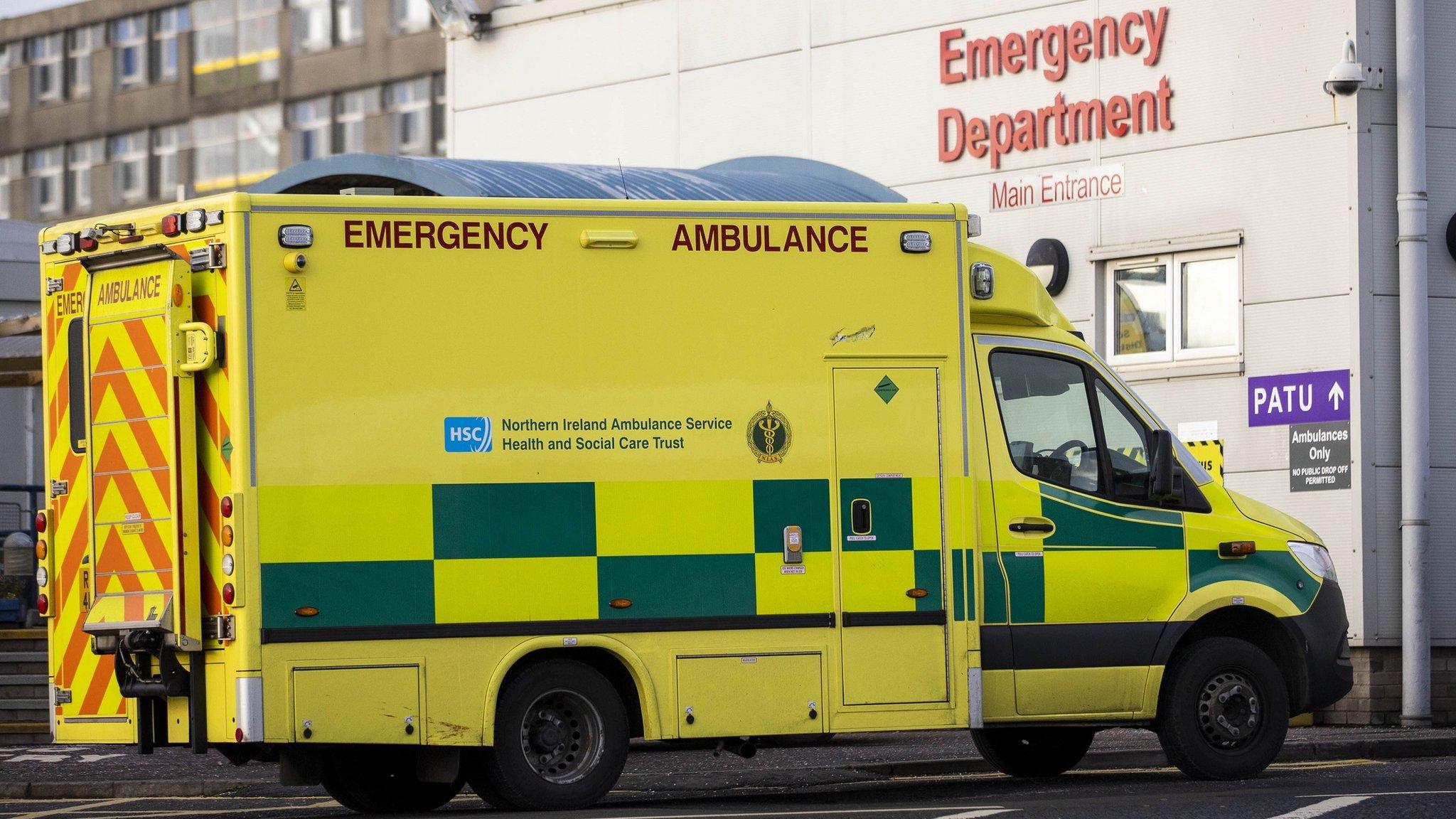Gloucestershire police take people to A&E when ambulances busy
- Published
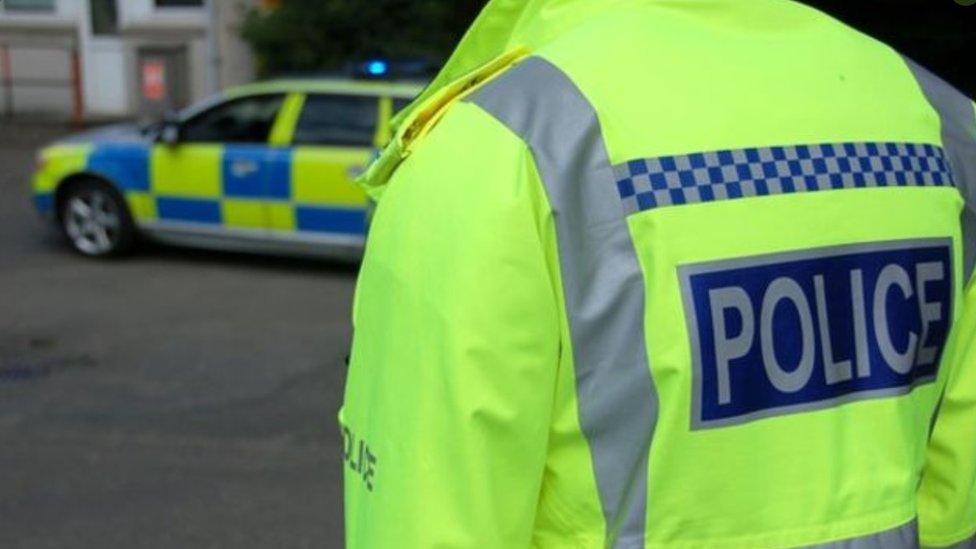
Police officers are taking patients directly into hospitals, according to Gloucestershire Police and Crime Commissioner (PCC)
Police officers are having to take people to A&E when ambulances do not attend Gloucestershire's Police and Crime Commissioner (PCC) has said.
The police and crime panel heard last week that officers had taken patients suffering from heart attacks to hospital to get "immediate treatment".
PCC Chris Nelson said: "It's dreadful, some of the stories that I hear."
South Western Ambulance Service NHS Foundation Trust (SWASFT) said it was only aware of one specific incident.
They added that this was not regular practice.
A SWASFT spokesperson told the Local Democracy Reporting Service (LDRS), the health and social care system had been under sustained pressure for many months, meaning patients were having to wait longer for an ambulance than they would expect.
"Our performance has not returned to pre-pandemic levels, partly due to handover delays caused by capacity issues in hospitals, and in community and social care", they added.
Mr Nelson explained the situation in last week's police and crime panel.
"Although in theory, the hospitals, mental health and patients are not our direct responsibility. It's the police that are having to take people who are having heart attacks to hospital and the ambulances won't come," he said.
"Police officers have to take them to hospital, take them directly into A&E, and jump the queue so that that person having a heart attack can get immediate treatment."
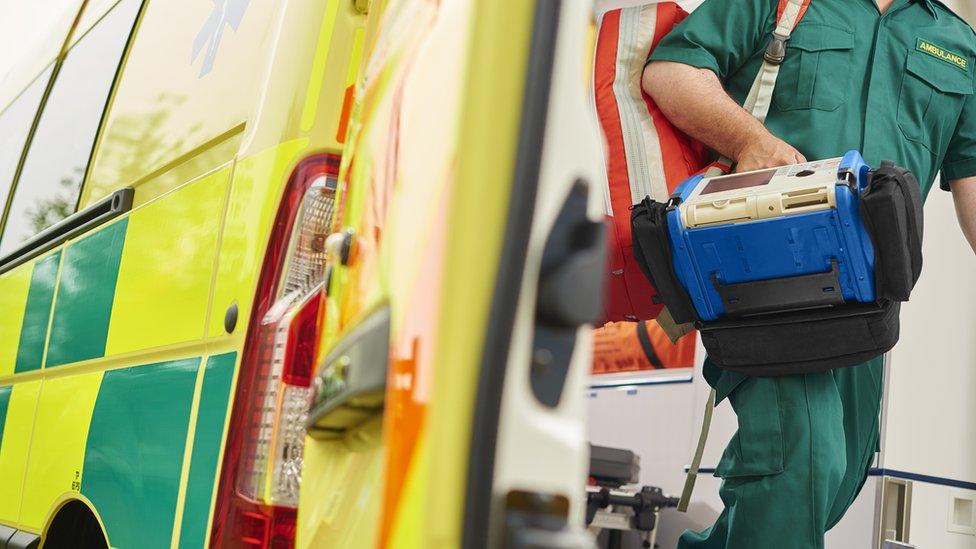
SWASFT admits it is taking longer to get patients to A&E than they would expect
A spokesperson for SWASFT said the whole health and social care system has been under sustained pressure for many months now.
"Our performance has not returned to pre-pandemic levels, partly due to handover delays caused by capacity issues in hospitals, and in community and social care. This means it's currently taking us too long to get an ambulance to patients," they added.
"We continue to work on a daily basis with our partners to ensure our crews can get back out on the road as quickly as possible, to respond to other 999 calls."

Follow BBC West on Facebook, external, Twitter, external and Instagram, external. Send your story ideas to: bristol@bbc.co.uk , external
- Published6 July 2022
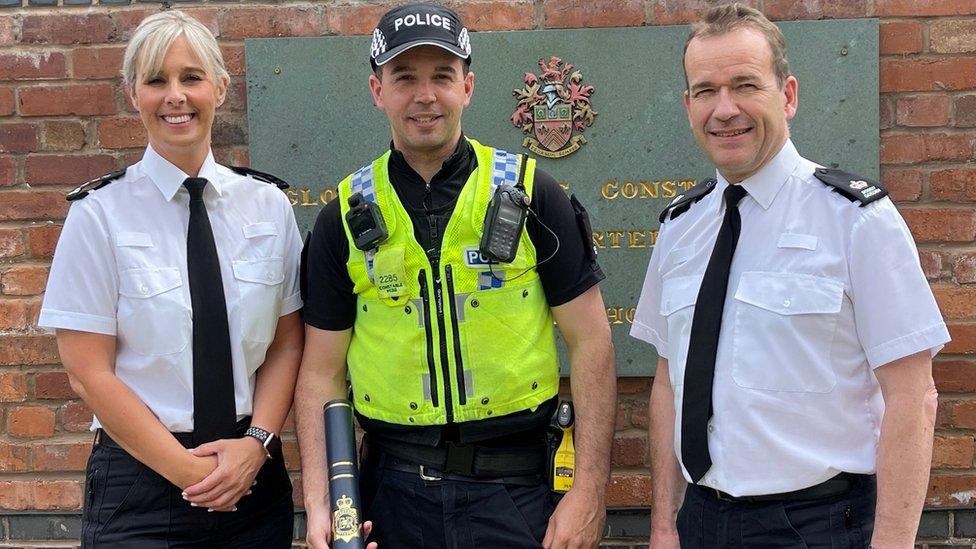
- Published6 July 2022
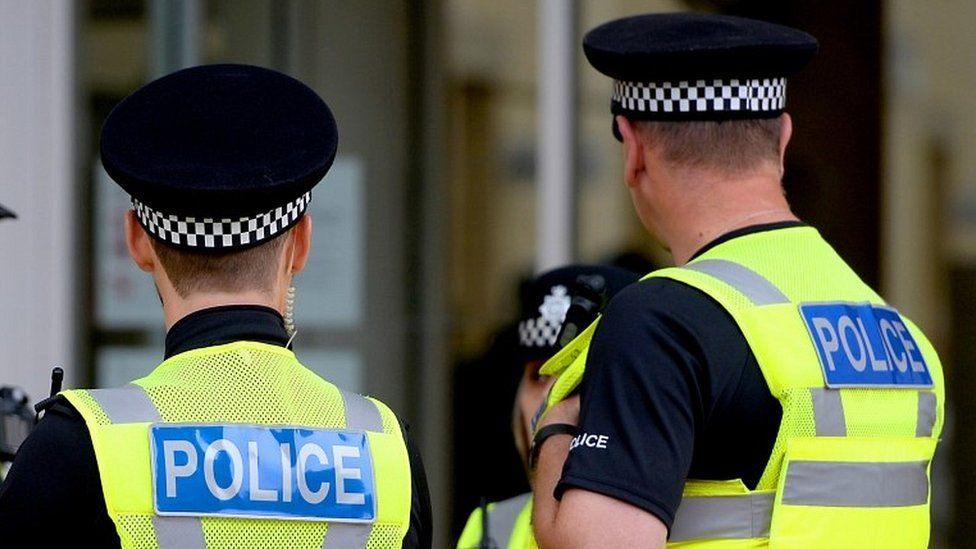
- Published10 February 2022
